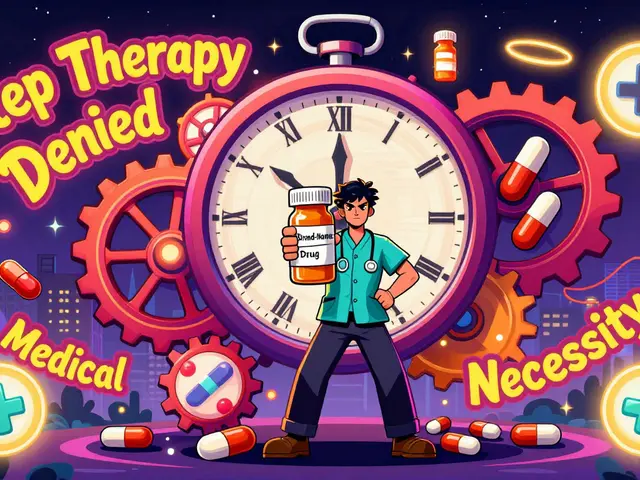Esophagitis treatment: how to feel better and heal faster
Got heartburn, pain when you swallow, or that constant chest discomfort? Those could be signs of esophagitis — inflammation of the esophagus. The good news: many cases respond well to straightforward steps you can start right away, plus simple medical treatments your doctor can prescribe.
Common treatments you’ll meet at the clinic
First, the doctor will try to find the cause. Acid reflux (GERD) is the most common trigger; infections (like yeast or herpes) and some medications can also inflame the esophagus. Treatment follows the reason: for acid-related esophagitis, proton pump inhibitors (PPIs) such as omeprazole or esomeprazole are the go-to. Take them before a meal for best effect. H2 blockers (like ranitidine alternatives) can help milder cases.
If an infection is the culprit, antibiotics, antivirals, or antifungals may be needed. For eosinophilic esophagitis — an allergic-type inflammation — doctors often use topical steroids swallowed as a liquid (not the same as inhalers) and work with allergy testing and dietary changes. Sucralfate can coat the esophagus and reduce pain while healing happens.
Short courses of meds can clear many cases, but some people need longer maintenance therapy. Your clinician may recommend follow-up endoscopy if symptoms persist, if you have trouble swallowing, or if there’s bleeding.
Practical tips & when to see a doctor
Simple lifestyle moves make a big difference. Avoid trigger foods: spicy meals, citrus, tomato, chocolate, peppermint, and alcohol. Eat smaller meals and don’t lie down for two to three hours after eating. Elevate the head of your bed by 6–8 inches to reduce night reflux. If you smoke, quit — smoking slows healing and raises reflux risk.
Watch medication risks. Some painkillers, bisphosphonates, and certain antibiotics can irritate the esophagus. Take pills with a full glass of water and stay upright for a few minutes. If a medicine seems to cause throat pain, ask your prescriber about alternatives.
When should you see a doctor right away? Get urgent care for severe chest pain, vomiting blood, black stools, sudden difficulty swallowing solids or liquids, or unexplained weight loss. These signs need fast evaluation to rule out serious problems.
Follow-up matters. If you have long-standing reflux or repeat esophagitis, your doctor may check for complications like strictures or Barrett’s esophagus, which needs monitoring. Work with your clinician on the lowest effective medicine dose and lifestyle plan that keeps symptoms controlled without unnecessary long-term drugs.
Esophagitis is usually manageable with the right steps. Start with diet and sleep changes, follow medication directions, and see your doctor if symptoms are stubborn or severe. Small, consistent fixes often bring real relief and faster healing.
How to Manage Erosive Esophagitis During Pregnancy
In my recent blog, I delved into managing erosive esophagitis during pregnancy. I discussed how this condition, which leads to inflammation and damage to the esophagus, can be exacerbated during pregnancy due to hormonal changes. I emphasized the importance of lifestyle modifications like adjusting eating habits, sleeping positions, and avoiding certain trigger foods. I also touched on the role of over-the-counter antacids and their safety for pregnant women. Lastly, I highlighted the necessity of regular check-ups with healthcare providers to monitor the condition and ensure the health of both mother and baby.





